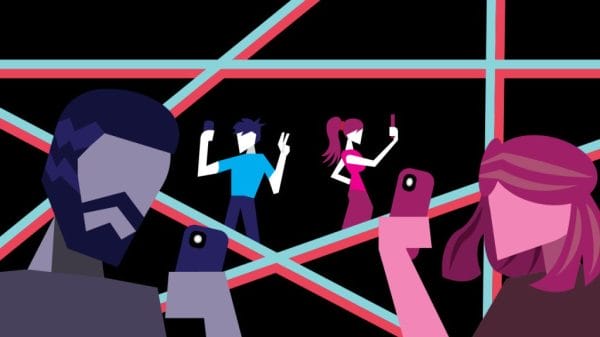Move over, Millennials—Gen Z is entering the workforce. But despite their age, members of Gen Z aren’t bright-eyed and bushy-tailed.
Instead, workers in their early 20s struggle with mental health issues, financial debt, and the rise of “ghost jobs,” which fluff up job boards and trick prospective employees. All of these factors, compounded with general societal stressors, are causing young people to enter a “quarter-life crisis.”
What can we do about it?
The Quarter-Life Crisis
Most people know about the “mid-life crisis,” in which middle-aged adults might dye their hair, buy fancy sports cars, or leave their spouse for someone younger. However, Gen Z is hitting their prescribed crisis much earlier—typically around their early-to-mid twenties, right after they graduate college. Signs of this crisis include financial instability, mental health issues, lack of community, and general depression.
The quarter-life crisis isn’t unique to Gen Z. Millennials have been experiencing these hardships for years now, and they’ve only gotten worse since 2020. Between corporate job burnout and rising rent prices, no one in their twenties (or thirties) seems to be doing very well. In the past few years, this realization spurred a growing movement on social media, and even some popular songs such as “Quarter Life Crisis” by Taylor Bickett.
Financial Worries
The problem stems, as they often do, from the economy. Over the past several years, the housing market grew so competitive that anyone under the age of 50, no matter how well-off, became locked out of home ownership. As a result, rent prices skyrocketed. In 2021, the Federal Board of Governors reported that “about half of renters with income between $25,000 and $49,999 had rent payments that exceeded 30 percent of their income.”
Higher rent makes other necessities, such as insurance and food, harder to afford. In turn, young people need to work longer hours, meaning that their life boils down to working, sleeping, and repeating. This leaves Gen Z and Millennials with little time for any sort of social life, romance, or personal development. Furthermore, many have moved back in with their parents to save money, causing them to feel like they are falling behind in life.
Rachel Hyun Jung says, “I just couldn’t help but feel so behind. It kind of felt like I was taking a huge step backwards. But something that finally gave me peace was realizing how much my friends also felt similar feelings. Whether it was with their job or relationship status, they also had an area they felt behind in. And honestly, just knowing that I wasn’t alone gave me so much comfort.”
The Rise of Ghost Jobs
Some skeptics might suggest that Millennials and Gen Z simply try to get better-paying jobs. However, not only is this incredibly difficult, but employers are making it nearly impossible. “Ghost jobs” are job postings that look real, but are simply put up for appearances, with no intention of ever being filled.
Justifications for these “ghost jobs” include placating overworked employees, stocking a pool of ready applicants, and giving off an impression of company growth. Though new studies warn applicants away from these trick job postings, many are just too hard to spot. This leads to a frustrating trend of young employees applying to dozens or even hundreds of jobs, with not a single call back.
Overcoming the Crisis
So, with all these setbacks, what can young people do to improve their lives?
Honestly, the first step is to realize that in some areas, you can’t do much. The economy is a huge societal problem, and it’ll take more than one person to fix it. In the meantime, though, we should take wins wherever we can get them.
If you haven’t gone no-contact with your family members, you might want to consider moving back home. Rent takes up a significant portion of a young person’s budget, and anything that lessens that burden should be viewed as an advantage. Plus, it’s a good opportunity to connect with family and strengthen relationships.
Sources of joy come in all shapes and sizes. Try de-stressing by going on walks, cooking for yourself, or connecting with friends. Other popular suggestions include exercising, finding a creative outlet, and planting a garden. Although these things may seem small, any time spent for yourself will be well worth the effort.
Nancy on Tiktok reminds us: “While you may feel like your quarter-life crisis is never-ending and dire, just remember that it’s actually a blessing in disguise. It’s the universe’s way of telling you to finally reflect. I still don’t know what this year looks like, but I trust the process.”
Whatever you do, don’t worry too much. You’re not alone—nobody has it all figured out in their twenties or thirties. Take a breath, live your life as much as you can, and try to trust the process. Chances are, it’ll all be okay.
To read more about work burnout, click here.














